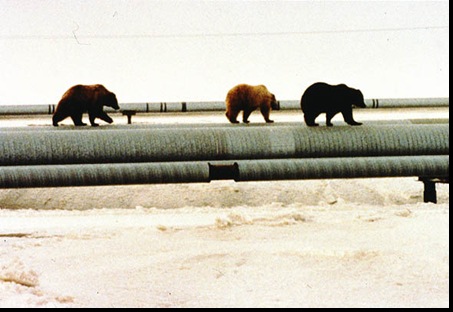Darn kids, always flouting regulations, that's what's wrong with young people today . . .
But, you say, "the county apologized, and no real harm done, right?" (except for fixing permanently in that girl's mind a terrifying first impression of government - oh, wait, that's not harm, sorry). Yes, this was a mere county government worker just acting "by the book." It was easily cleared up by Jeff Cogen, chairman of the Multnomah County Board of Commissioners.
(By the way, when you need a board to manage all your commissioners, doesn't that tell you something?)
But this was one smallish county in a meduim sized metro area in a smallish state. Very few levels between the health department employee and Mr. Cogen. Imagine the same quick corrective action happening in LA county, or New York City . . . yeah, I can't either.
County regulations are simple when compared with State regulations, and nothing compared to the massive and ever-expanding river of regulations continually spewing from Federal agencies.

The photo above is of titles 12 to 26 out of 50 titles of the Code of Federal Regulations. Yes, that's only about one fourth of the Federal Regulations out there - and this is before agencies start creating regulations for "Health Care Reform." (the bill itself was 2000 pages, but it left most of the rule-making to Federal agencies. 2000 pages? That's nothing compared to the regulations that will come out of it - wait and see).
This site gives some scope to the problem:
According to the Office of the Federal Register, in 1998, the Code of Federal Regulations (CFR), the official listing of all regulations in effect, contained a total of 134,723 pages in 201 volumes that claimed 19 feet of shelf space. [Note: 10% or 13,458 pages are IRS regulations alone]. In 1970, the CFR totaled only 54,834 pages.The General Accountability Office (GAO) reports that in the four fiscal years from 1996 to 1999, a total of 15,286 new federal regulations went into effect. Of these, 222 were classified as "major" rules, each one having an annual effect on the economy of at least $100 million.
134,723 pages?!?! A person could literally be crushed by the weight of Federal regulations, ha ha . . . . sorry bad joke. But seriously, if you could read 1 page a minute, 24 hours a day, you'd finish reading it in a little over 93 days.
There are entire paid publications dedicated entirely to informing industry attorneys that a single Federal agency is going to change regulations. There are currently about 14,800 notices, rules, or proposed rules open for comment on regulations.gov. According to that site, "On average, federal agencies and departments issue nearly 8,000 regulations per year." (Double what they issued in 1996 - 1999).
But why fear the government? Those 134,723 pages of regulations (plus 8000 new regulations per year) plus all the state and local regulations would never affect the average person, would they?
Lets ask the little girl from Oregon . . .












